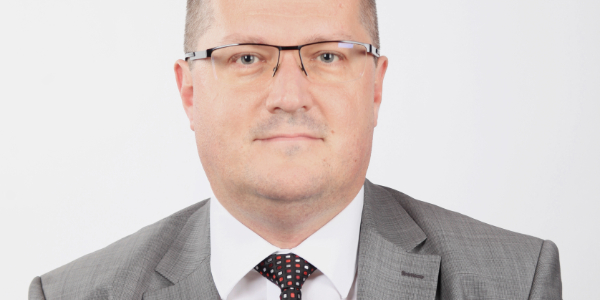The Constitutional Imaginaries of Crisis and Emergency: Between Battle of Narratives and Entanglement in Quantum Constitutionalism
A Public Lecture by Visiting Researcher from the University of Sofia Prof. Martin Belov
5th June 12:30 - 13:30PM, LH324

What will the lecture be about?
The main claim of this lecture is that constitutional imaginaries are elements of a quasi-neural meta-personal network of consciousness through which the people understand the constitutional order. This network is based on textual, visual, and performative narratives that inspire, engage with, and organize the collective constitutional conscious, subconscious, and unconscious. It produces meaning on the basis of imaginary constitutional enchantment through affectual and emotional nudging and symbolic engagement with constitutional archetypes and other anthropological structures of collective constitutional ‘make-believe’.
The lecture will demonstrate that the constitutional imaginaries of crisis and emergency are a result of competing narratives which may amount to battles for control of the narrative. They are ensuing from narrative sovereignty as the ultimate source of narrative quantum entanglement of meaning. The narratives are producing – alternatively or cumulatively – constitutional imaginaries which are shaping the collective constitutional conscious, subconscious, and unconscious. The analysis of the narrative-based character of constitutional imaginaries of crisis and emergency is then followed by outlining the fundamental concepts of quantum constitutionalism, cloud constitutionalism, and quantum entanglement of the constitutional order via constitutional imaginaries. This allows for proper embedding of crisis and emergency in the context of quantum constitutionalism.
Will the lecture be in a hybrid format?
Yes, to receive the link please write to Dr. Mirosław M. Sadowski at miroslaw.sadowski@strath.ac.uk.
Who is Prof. Martin Belov?
Dr. Martin Belov is Professor in Constitutional and Comparative Constitutional Law at the University of Sofia ‘St. Kliment Ohridski’. He is Vice Dean of the University of Sofia ‘St. Kliment Ohridski’, Faculty of Law responsible for international relations and digitalization. He is adjunct professor at the University Roma Tre, Rome, Italy (since 2019).
Martin Belov has been Sutherland Fellow at the UCD (Dublin, Ireland) (2024). He has been visiting professor at University of Teramo (2025), University of Milano (Italy) (2024), University of Trento (Italy), (2024), University of Catania (Italy) (2024), EURAC (Bolzano, Italy) (2024), Reichman University, Harry Radzyner Law School (Herzliya, Israel) (2021-2023), University of Zagreb, Croatia (2023), Jagiellonian University of Cracow, Poland, (2024 and 2022), ‘Aristoteles’ University of Thessaloniki, Greece, (2022), University Paris II Pantheon-Assas (2019), Goethe-University Frankfurt am Main, Germany (2019), University of Girona, Spain (2019), University ‘Pompeu Fabra’, Barcelona, Spain (2019), Europa-University Viadrina, Frankfurt/Oder, Germany (2017 and 2018), University of Bari, Italy (2018), European Law and Governance School, Athens (2017-2018 and 2020-2021), University of Södertorn, Stockholm, Sweden (2017), Scuolla Superiore Sant’Anna, Pisa, Italy (2016), University of Warsaw, Poland (2015), University of Lisbon, Portugal (2012), State University of Milan, Italy (2011), University of Cologne, Germany (2007-2009) etc.
Martin Belov has been project researcher at the Max-Planck Institute for European Legal History, Frankfurt am Main, Germany (2010-2012) and visiting researcher at the Institute for Federalism, Fribourg, Switzerland (2014). He has specialized at the University of Oxford (UK) (2017), Max-Planck Institute for Comparative Public Law and International Law, Heidelberg, Germany (2009) and many other academic institutions.
Martin Belov is member of the European Group of Public Law, International Association of Legislation, the Advisory Board of the Central and Eastern European Forum of Young Legal, Political and Social Theorists, and other scientific and academic organizations.
Martin Belov is member of the scientific boards of many academic journals. He has participated in numerous international research projects (including Horizon 2020 and Recovery Fund projects, the German Cluster of Excellence projects etc.). He has published 25 books (some of which edited volumes) and 111 scientific papers and book chapters.